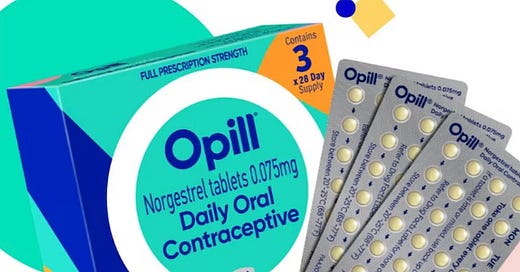Birth control will be over the counter for first time
Pharmaceutical company announces it will ship Opill
On Monday, a company began shipping over-the-counter birth control for the first time in history.
Birth control had always been something that required a prescription for women to get. The pharmaceutical company Perrigo announced that it will ship the Opill, which is the name of the medication that women will take to control their fertility.
Perrigo’s release indicated that company experts recommended a retail price of $19.99 for a one-month supply. However, individual retailers will set costs, which may vary across stores and locations. Consumers can expect to find Opill in retailers and pharmacies in the coming weeks.
Rachel Fey, vice president of policy and strategic partnerships for Power to Decide–an organization dedicated to advancing reproductive medicine and rights, spoke about the moment's significance.
“That could be a game changer for some people,” Fey said.
Ninety million women live in contraceptive deserts, which are defined as women living in an area that lacks reasonable access in their county to a health center that offers the full range of contraceptive methods.
This week’s announcement was the culmination of decades of work on the part of advocates, researchers, reproductive health care providers, and patients and how to get this to where we are now, Fey said. Groups involved in advocacy, reproductive medicine, and regular citizens from underserved areas fought for greater birth control access.
“This really is a moment,” Fey said. “And I think it's all the more important when access to reproductive healthcare is under attack in so many ways.”
Some issues remain to fight for, including having public and private insurance pay for the medication even if it is sold over the counter. As virtually everyone knows, most medications that are covered come from a prescription. Anything sold over the counter is usually just picking it off the shelf and then taking it to the cash register.
“If we're really going to have meaningful access for everyone who could benefit from a pill, it can't just be about the price on the shelf,” Fey said. “It has to be about coverage, both public and private.”




